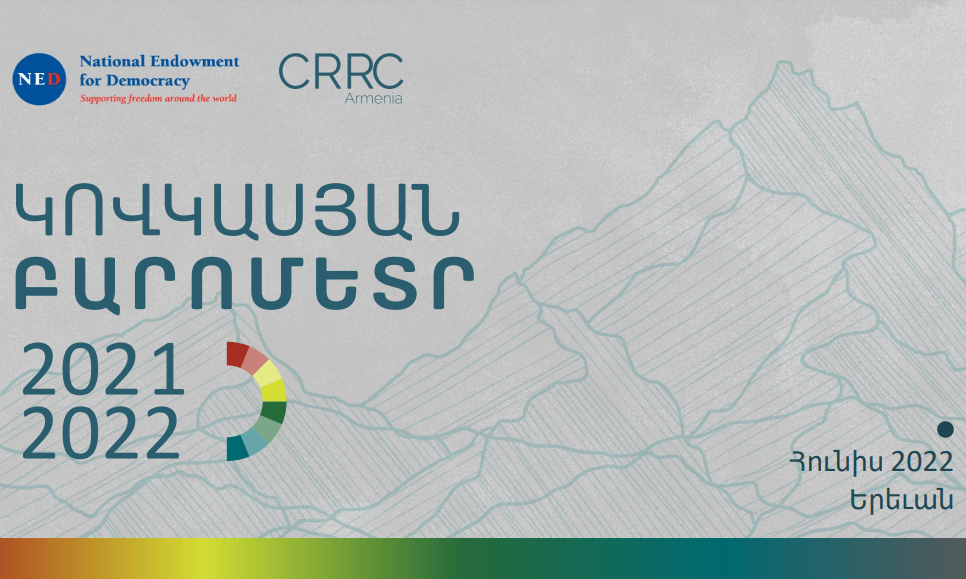The Caucasus Research Resource Center (CRRC) Public Opinion Survey, a Caucasus barometer conducted in Armenia and Georgia (public opinion polls are no longer conducted in Azerbaijan after 2015), shows quite worrying results, especially for the media.
And since this year’s research compares the data of different years, it is interesting to see how the perceptions of Armenians about life, state, expectations, consumption of information, and self-expression have changed (or have not changed).
What is the most important problem facing Armenia at the moment?
In 2012 and 2019, the majority (45% and 30%) answered unemployment, and in 2021, the lack of peace in the country (41%). In the last year, concepts that society attaches importance to have acquired a new and modern meaning. 18% consider delimitation, demarcation, and state borders a priority state issue.
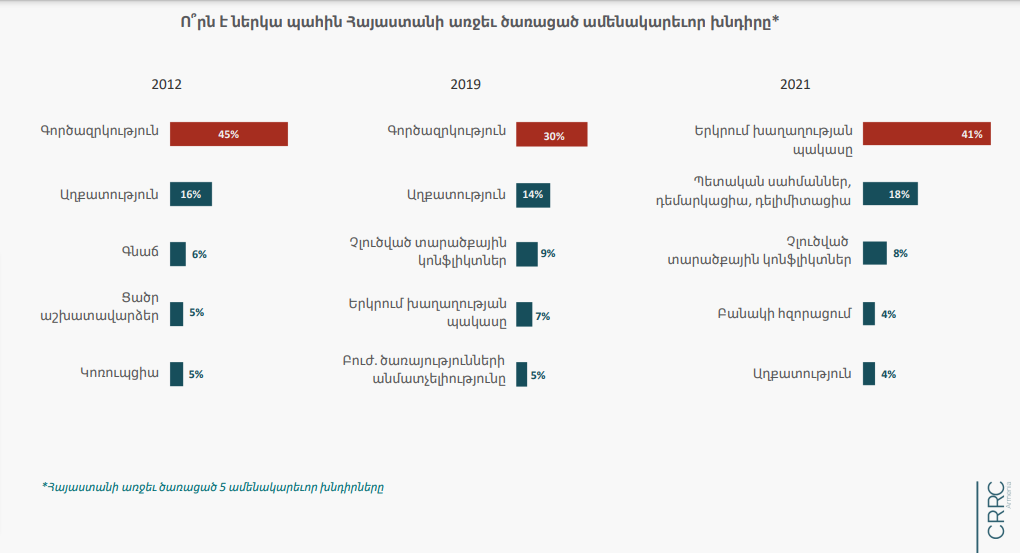
80% of people are sure that people like them in today’s Armenia have the right to freely say what they think. That is a very high index.
And at the same time, very few people think that one can trust public speech and especially the mass media.
The media and the National Assembly are in the lowest positions on the scale of trust. Only 1.1% fully trust the media, and 55% do not trust it at all.
The ombudsman, the army and the European Union are more reliable.
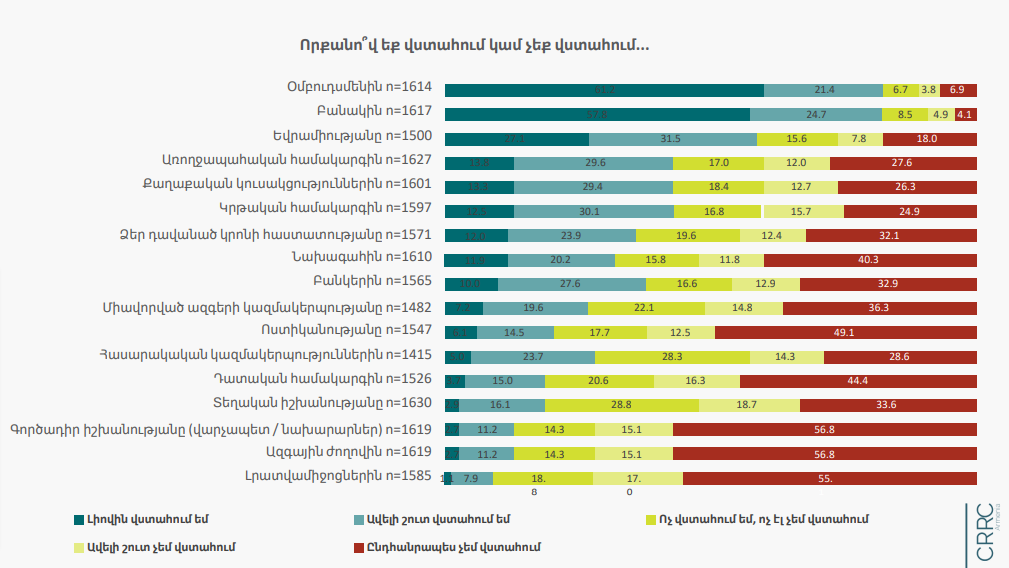 Distrust of the media (as well as religion) has risen sharply in the last two years.
Distrust of the media (as well as religion) has risen sharply in the last two years.
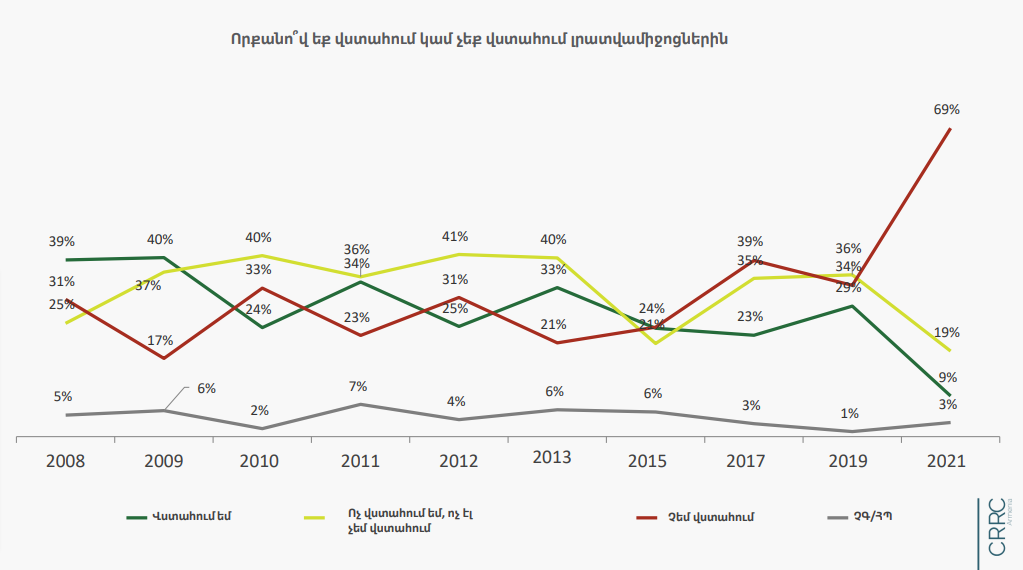
When measuring the trust index, it is more remarkable not only how state and public institutions are perceived, but also how people perceive each other. The bridges of trust built from person to person (without intermediaries) are the starting point of public solidarity and perhaps state sustainable development.
Do most people in Armenia deserve trust, or will excessive care in relationships never interfere? The answers to this question show internal tension and aggravation of social problems, as 62% think that the environment is not worthy of trust.
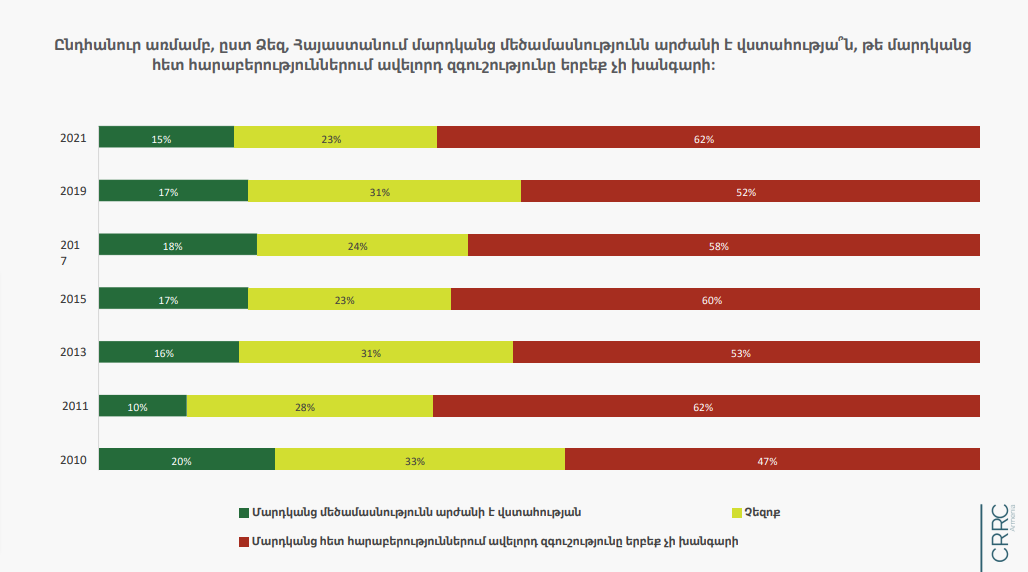
This data can also be explained by the role of the media, which in recent years has been mainly engaged in disseminating polarized opinions. Or, moreover, by creating polarities in order to better sell its products to the audience.
And from the descriptions of the role of the state, it becomes clear that many identify the state with the family (home), and their contribution is only as obedient children.
People are like children. The state should take care of them like a parent. 69% think so, and only 26% agree with the idea of controlling the state’s steps.
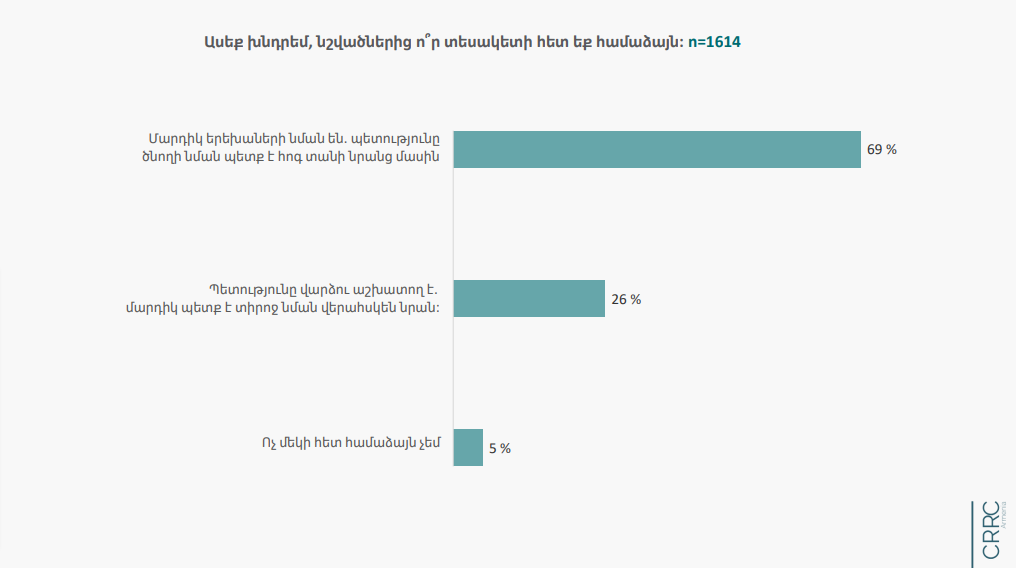
These are data that are actually interconnected. If the state is perceived as a parent, then the result is a decrease in people’s critical approach. And fatalistic moods begin. Or trust is replaced by faith, a more irrational feeling.
In the end, it will be good in Armenia.
In 2017, 47% thought so, in 2019 – 80%, and in 2021 – 78%. That is, even after the war, the optimism is higher than it was during the previous government.
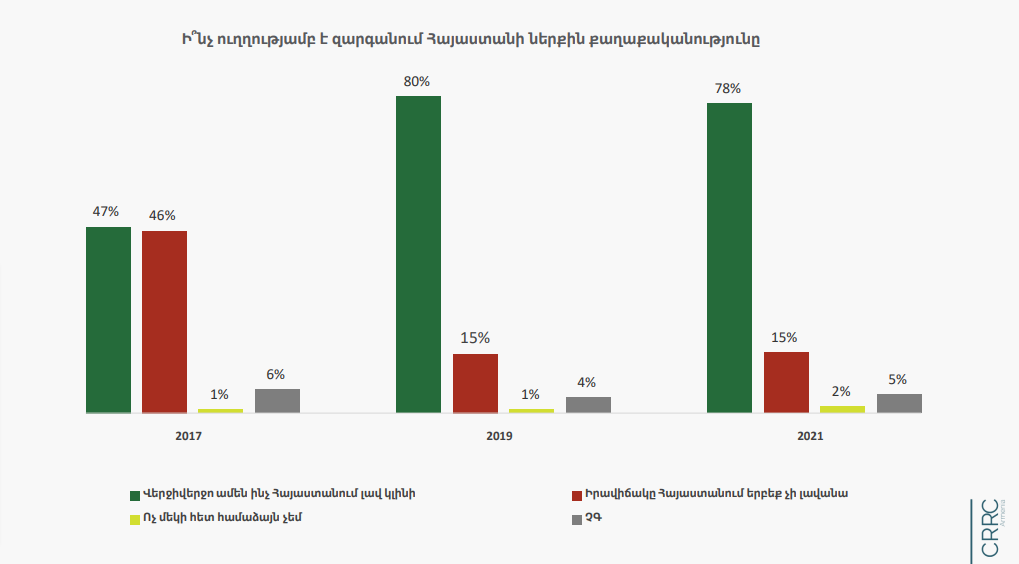
And if we are talking about a previous life, then it turns out that the main and longing preference is given by the majority to the Soviet Union.
The collapse of the Soviet Union is assessed negatively by 67% of Armenians. In other words, the majority thinks that it was better in the Soviet Union, and this is explained by the deterioration of the economic situation in independent Armenia.
Public opinion polls are a good opportunity to think about how the social justice factor works. In fact, people need social justice. Even the Soviet nostalgia for it. At least, the illusion that there was equality and a more or less harmonious (without war and tension) life.
And the same search for social justice can be seen in media data.
For example, the main sources of internal events in Armenia are social networks (for 32%), the general Internet, excluding social networks (for 14%), and television (for 46%).
How much do you agree that TV journalists serve the interests of people like you? 6% completely agree with this idea, and 22% do not agree at all.
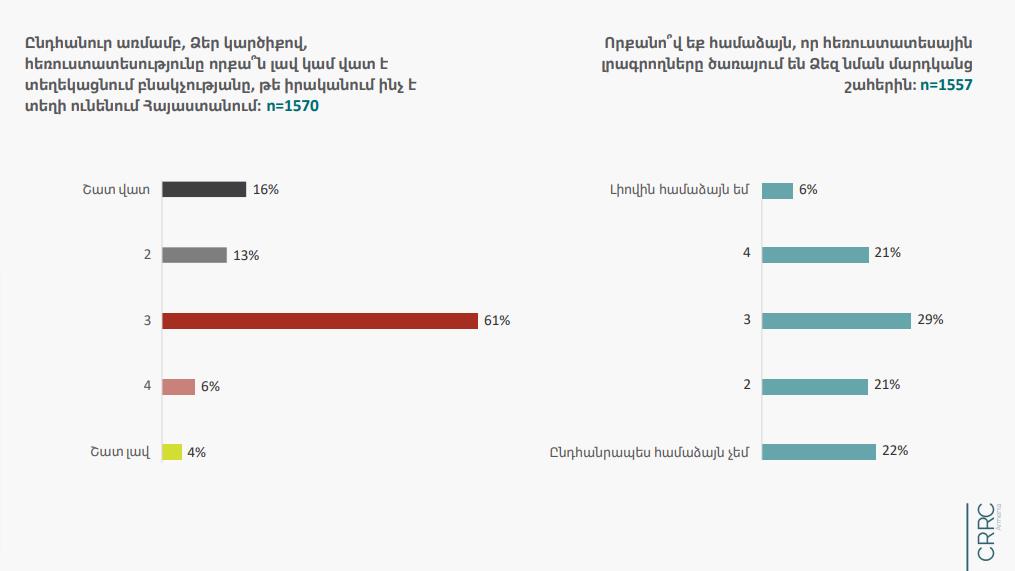
One can assume that very few people equate the work of television with their needs. And who the television serves are the main reason for distrust.
And while for many (69%) the misleading information spread on the Internet is a serious concern, people have already drawn their own small paths through which they check the information and find the most reliable sources of information.
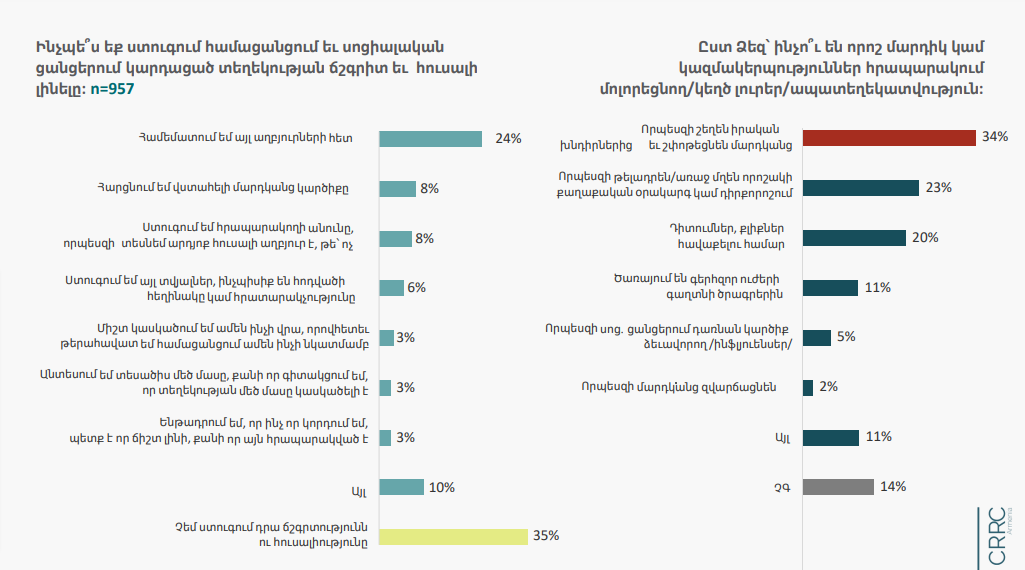
72% of people use the Internet every day. The primary social networks are Facebook (37%), and YouTube (31%). And first of all, 84% of people expect political news from social media.
Nune Hakhverdyan

